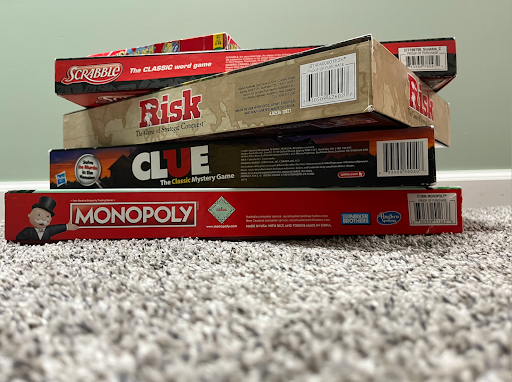Dear sixth graders,
From Kindergarten through fifth grade, I was convinced “Diary of a Wimpy Kid” was a cautionary tale for middle school. I confidently memorized the morals of this book series like it was the Pledge of Allegiance: don’t go searching for mounds of gum latching underneath the wooden tables or say “playdate” if you want to “hang out.” And like the gum under the tables, these philosophies stuck with me.
“Diary of a Wimpy Kid” approached the portrayal of a learning institution with each desk six feet away from another as if it were social distancing, and included the occasional bullies as well. Although I can confirm the rumors of gum underneath the tables, I can also debunk the myths that middle school is the start of your demise.
Although I can stand by this: elementary school does not prepare you for middle school, is a claim that does not require a persuasive essay to be proven. Transitioning from abstract playgrounds to concrete roads is the duty of an optimist— in other words, my fifth grade teacher’s admirable attempt. She described the hallways like it was a battlefield: a hostile environment where efficiency and swiftness is fundamental when eluding a tardy. But despite her warnings, I was still not prepared.
I was still not prepared regardless of ironing my “first-day of school” outfit that I had meticulously planned months ahead. Because on the first day of middle school I was greeted with an intimidating maze of hallways and an army of backpacks marching to their next destination, with the additional detail that I was also late. Nobody could prepare me for that, not even “Diary of a Wimpy Kid.”
But I still related to this book series. During the initial months of middle school I often found myself most comparable to Greg Heffley, the “wimpy kid.” Like Heffley, I had a loyal yet modest friend group and a well-known older sibling. I was also unfamiliar with the law and ethics of middle school.
But I knew this: the behavior of middle schoolers corresponds to how a robot is arranged. It is as if they were programmed for generating a snarky remark to a question, comment, or concern, within seconds—a blueprint that codes actions and words. It was also instilled that when you begin middle school, this software is automatically installed, wired into your mind. But strictly from my experience, I think there might’ve been a malfunction in the system.
The sky may be the limit, but for me it was my limited understanding of social cues. With this restriction, I asked friendly faces in a candid manner: “Do you want to be my friend?” In my defense, I was never discouraged from enunciating these seven words, though I was ultimately pronounced guilty of committing this “crime.” But now a privileged few possess the bragging rights for being asked such a question during their middle school years.
My experience was also strictly algebra, HOSA, and an assortment of after-school activities. But finding a place for myself in each of these pursuits took time, especially cross country.
I have never been bestowed the genes that constitute an olympic athlete, or a cross country runner. Additionally, Lululemon leggings and Nike sneakers were never my designated attire, yet I still joined cross country. People can speak, smell, and amble, but running is a verb that many struggle with. And as the daunting name suggests, running is cross country’s forte— though it was not mine.
But something that was mine was a slip of paper, handed out at the end of cross country practice, that conveyed an imperative message: “Cross country meet approaching.” Out of dread, I created a variety of excuses to intercept my inevitable attendance. I could’ve declared that I had torn my ACL in eight places or announced that I had contracted the flu, but as the more dignified alternative, I said I’d be there.
And there I was in the race, at the edge of a 1.8 mile route woven with hills and side stitches. If you were spectating from the crowd, you would have seen me sprinting to the end, somehow managing to persevere. Though many can boast about finishing with ease or receiving a high ranking, I can boast about crossing the finish line.
And although stepping over the finish line does not guarantee an admirable ranking like others, it did achieve the most valuable placing of all: a place for myself in cross country.
Now as a seventh grader, I am convinced that “Diary of a Wimpy Kid” is a fictional—albeit realistic fiction—book series intended to entertain, not educate. And as a seventh grader too, I have confidently memorized the morals of this series as if it were my locker combination: middle school can not be prepared for or warned about, only experienced. And it took sixth grade to realize that.
Best regards,
Annabella Mi
P.S. Get the snickerdoodle cookies from the snack bar— they’re the best.







